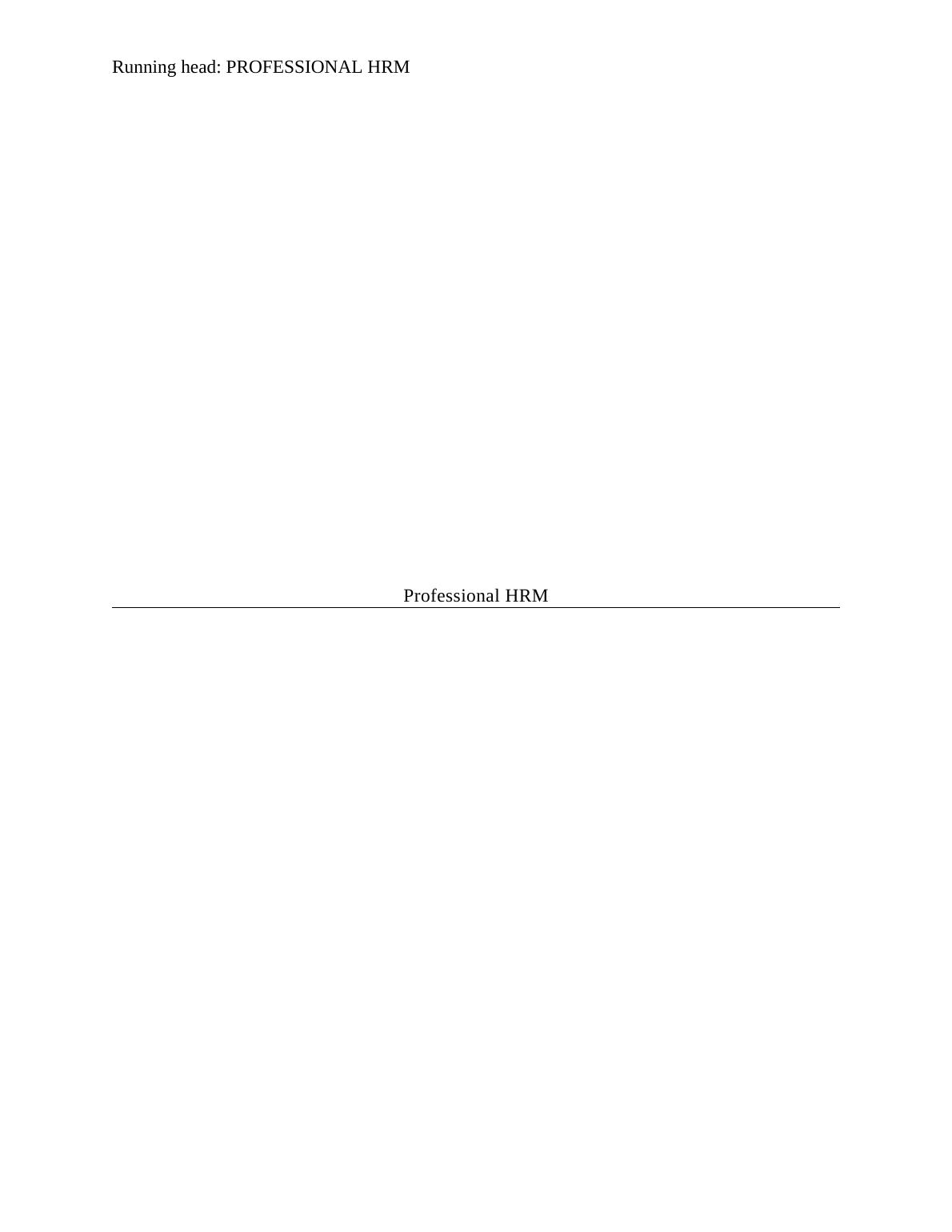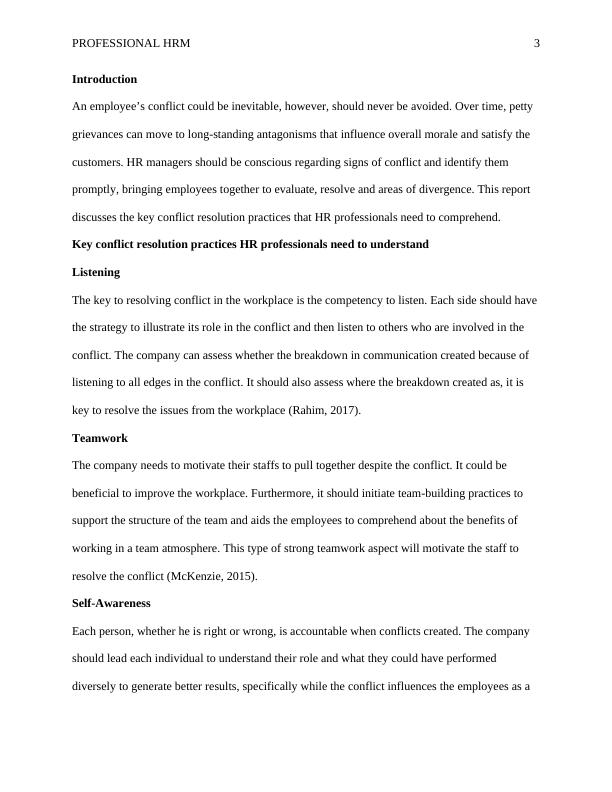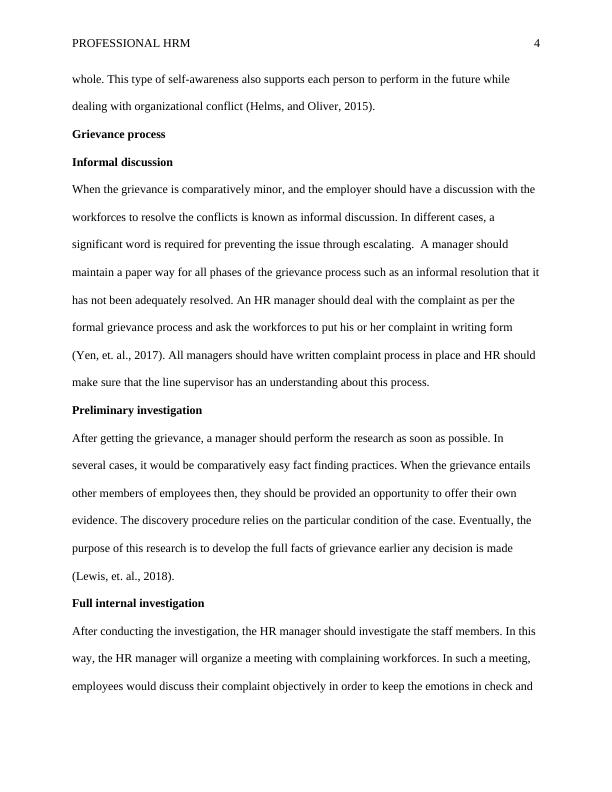Key Conflict Resolution Practices for HR Professionals
Write an individual report analysing the processes and outcomes of conflict resolution exercises, focusing on the key practices HR professionals need to understand.
14 Pages3581 Words341 Views
Added on 2023-06-03
About This Document
This report discusses the key conflict resolution practices that HR professionals need to comprehend. It covers topics such as listening, teamwork, self-awareness, grievance process, main approaches, eight steps in managing conflict, negotiation, and obstacles to a resolution.
Key Conflict Resolution Practices for HR Professionals
Write an individual report analysing the processes and outcomes of conflict resolution exercises, focusing on the key practices HR professionals need to understand.
Added on 2023-06-03
ShareRelated Documents
End of preview
Want to access all the pages? Upload your documents or become a member.
Employment Relationship Management Unit 4
|15
|1289
|387
BSBHRM604 Manage Employee Relations – Employee relations
|9
|1428
|10
Professional HRM practices
|6
|1997
|306
HR Skills for Effective Workplace Management
|20
|1336
|95
Human Resource Management: Overview, Roles, and Benefits
|21
|1187
|22
Role of Human Resource Managers in Conflict Resolution, Negotiation and Cross-Cultural Collaboration
|13
|2978
|248




